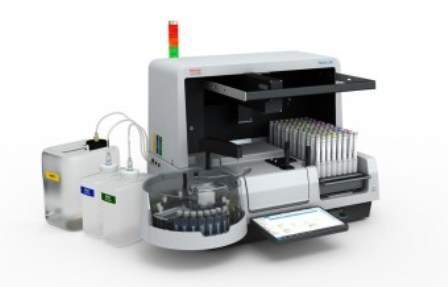
The CE-marked Phadia 200 instrument is said to advanced in-vitro diagnostics in Europe for allergy and autoimmunity conditions.
Part of the Phadia laboratory systems, the small and flexible Phadia 200 instrument can be used to carry out 700 different ImmunoCAP and EliA tests, enabling to diagnose allergic and autoimmune diseases.
The instrument, which accommodates different types of workflows, enables facilities to create test menus for clinicians to meet their specific requirements.
Thermo Fisher’s new Phadia 200 instrument is fully automated for offering full traceability of all reagents and supports smaller diagnostics facilities to increase their throughput and efficiency.
Phadia 200 instrument also reduces the risk of sending samples offsite for testing, enabling labs to retain control of own labs and improve operational efficiencies.
Similar to all Phadia instruments, the new instrument will detect and quantify clinically relevant antibodies in the blood to support clinical diagnosis in autoimmune and allergic disease.
The Phadia 200 is also said to provide significant flexibility for large testing laboratories. It holds capacity to process 42 samples at a time and offer up to 200 test results per day.
The users of existing Phadia instruments can bundle Phadia 200 with other Phadia instruments to support flexible expansion.
In addition, the advanced Phadia Prime software enables integration into one network using a single software.
According to the company, the first installations of Phadia 200 are underway at select European sites.
Thermo Fisher Scientific immunodiagnostics president Stefan Wolf said: “Testing in the allergy and autoimmunity disease areas is changing faster than ever before in a consolidating laboratory market.
“The Phadia 200 instrument is a significant step forward in bringing full automation and efficiency to diagnostic testing facilities of all sizes. It enables labs to offer a wide range of tests in fast-growing markets and supports continued growth in more established markets.”






